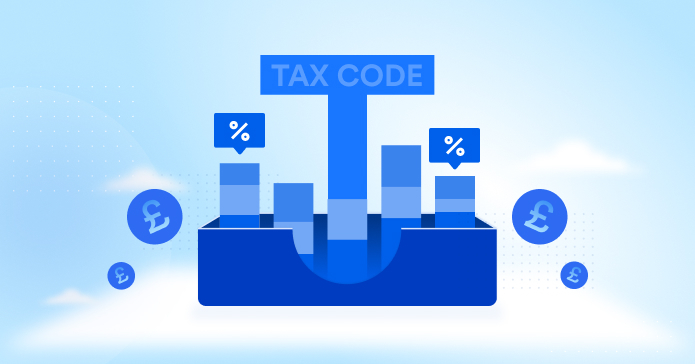If you've been wondering about the meaning behind Tax Code T, you're not alone. Tax codes are notoriously confusing, but understanding them is essential to ensuring you’re paying the correct amount of tax. Tax Code T has a specific significance, and if it appears on your payslip, it’s worth knowing what it means and why it matters.
This guide will break down everything you need to know about Tax Code T, from its meaning to its implications, and offer actionable advice to resolve any issues with it. Our goal? To simplify the complexity and save you time, money, and stress.
Tax Code T is assigned by HMRC to indicate that your taxation situation requires special calculations. It’s often used when there are complex adjustments to your Personal Allowance or when HMRC needs more information to finalise your tax code. Essentially, it’s a placeholder that signals a review is necessary.
For example:
- You may be receiving taxable benefits (like a company car).
- Your income may exceed £100,000, reducing your Personal Allowance.
- Allowances may need to be split across multiple sources of income.
- HMRC may need to confirm certain income details or benefits to calculate your final tax code.
If your tax code ends with the letter T, it’s important to check that your tax deductions are accurate and to provide HMRC with any requested information.
What does the T mean on my tax code?
The T in your tax code does not stand for a specific word, but it indicates that HMRC has made adjustments to your tax code or is monitoring your tax situation more closely due to one or more of the following reasons:
- Your Personal Allowance needs detailed calculations, often due to income exceeding £100,000.
- HMRC is waiting for additional information to clarify allowances, benefits, or deductions.
- Your tax situation is not straightforward, potentially involving multiple income streams.
For example, if your tax code is 1257T, it suggests:
- You are entitled to a £12,570 Personal Allowance (subject to adjustments).
- Taxable benefits or complex circumstances might apply, requiring HMRC to review your code annually.
While Tax Code T is not inherently bad, it’s vital to ensure the details behind it are accurate to avoid overpaying or underpaying tax.
What is the T code on a payslip?
When the T code appears on your payslip, it refers to the tax code your employer uses to calculate deductions from your income. A common example is 1257T, where:
- 1257 represents your predicted annual tax-free Personal Allowance (£12,570 in the 2024/25 tax year).
- T flags adjustments or additional calculations required.
Employers aren’t involved in determining tax codes but are obligated to use the code HMRC provides for accurate payroll deductions. It’s ultimately your responsibility to check that your tax code matches your situation.
What to do if you see T in your tax code on a payslip:
- Check the breakdown of your tax allowance in your Personal Tax Account on GOV.UK.
- Compare the details on your payslip with your tax-free allowance and income deductions.
- Notify HMRC of any discrepancies or missing details.
Why has my tax code changed to T?
A change to Tax Code T can happen for several reasons. HMRC typically adjusts codes based on updates to your financial circumstances. Some common triggers include:
- Increase in income: If your earnings exceed £100,000, your Personal Allowance is reduced on a sliding scale, prompting a T tax code review.
- Receiving taxable benefits: Benefits like a company car, medical insurance, or bonuses may require deductions from your tax-free allowance.
- Multiple income sources: If you have more than one job or income stream, allowances may need to be split, resulting in a T code.
- Incomplete or updated records: HMRC might apply Tax Code T while awaiting missing information from you or your employer.
If you notice this change and are unsure why, log in to your HMRC account or contact their helpline at 0300 200 3300 for clarification.
What is the T code for tax determination?
The T code for tax determination is used by HMRC to calculate and adjust your tax obligation accurately when standard methods don’t apply. This ensures:
- Taxable income and benefits are correctly accounted for.
- Allowances are adjusted to reflect additional earnings or deductions.
- Your overall tax liability is balanced across different income sources or jobs.
For instance:
- If you receive income above and beyond your regular salary (like rental income or pension payments), HMRC uses the T code to determine and adjust your deductions.
The T code allows HMRC to adapt to unique financial circumstances, offering flexibility for adjustments.
How to resolve tax determination issues:
- Provide HMRC with updated details about your earnings, benefits, or income sources.
- Submit all forms requested by HMRC promptly to avoid miscalculations.
- Check your tax code regularly through your Personal Tax Account or payslips.
Why is understanding Tax Code T essential?
Your tax code plays a critical role in determining how much income is deducted for tax, but a lack of understanding could lead to costly mistakes. With Tax Code T, it’s particularly important to:
- Clarify complex situations: This code signals that additional details are required, so double-check your information with HMRC.
- Avoid overpayment: Misinterpreted codes could result in higher deductions. Resolving discrepancies ensures you keep more of your earnings.
- Prevent penalties: Underpayment due to incorrect codes could result in penalties, so regular checks help you stay compliant.
Resolving issues with Tax Code T doesn’t have to be daunting. Expert help from companies like Debitam can keep your tax obligations in check.
Simplify Your Tax Code and Stay Compliant
Navigating the world of tax codes, especially with a Tax Code T, can feel overwhelming, but you don’t have to go it alone. At Debitam, we specialise in simplifying tax management for businesses and individuals alike.
Working with professionals ensures:
- Accurate tax code determination.
- Optimised deductions to minimise liabilities.
- Reductions in penalties and unnecessary overpayments.
Contact Debitam today for tailored advice on your tax situation, and make sure you’re maximising your allowances while staying compliant.
Start your tax-saving journey now. Get in touch with us!













